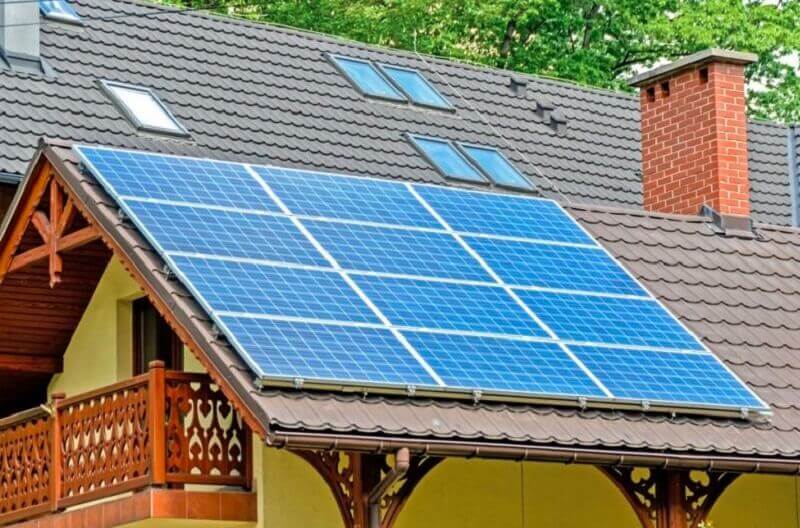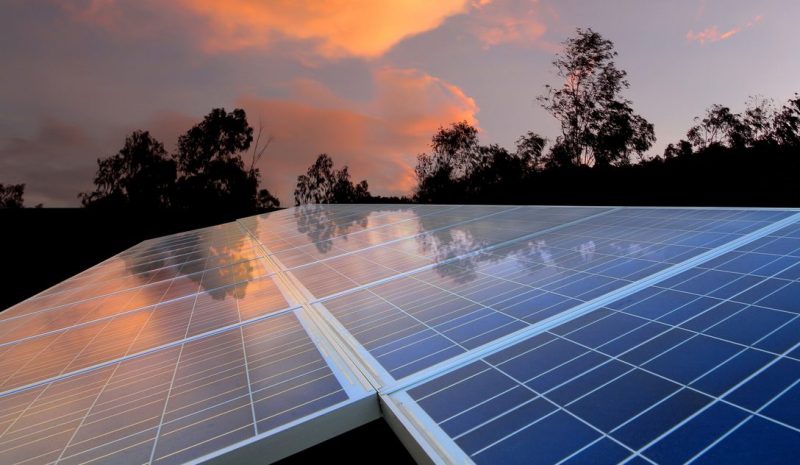Solar panels will produce electricity at 10-25% of their full capacity when there is heavy cloud cover. Don’t let this fact worry you!
The keyword in this stat is “heavy.” Varying amounts of cloud or shade will affect solar production, but even with no sunlight, you can still have access to electricity and offset your electric bill. Keep reading to learn about how solar panels can still be worth the investment!
Basic Understanding of Solar Panels
Solar panels need sunlight to create electricity. They can’t create electricity in the dark. The energy in sunlight that is primarily converted into electricity is photons.
Conductive silicone-based material in solar panels absorbs sunlight, and the energy from the photons converts it into electricity, creating a direct current (DC). Microinverters in the solar panels convert it to electrical current that can be fed back into the grid or a storage device. This is where you would work with either the power company to install a net-metering system or the solar company to install batteries if you want to be completely self-reliant.
Direct vs Indirect Sunlight
The misconception to clear up here is that only direct sunlight converts to electricity. This is not the case. Indirect sunlight can also be converted into electricity, just not as efficiently. Photons are still present in indirect sunlight; it will just take a longer exposure to create the same amount of energy.

Reflection Factor
While again, it’s not as efficient as direct sunlight, cloud cover can reflect indirect sunlight, and at times even magnify it. A phenomenon known as cloud lensing can at times create brighter light than direct sunlight, though it is a rare occurrence that only lasts 5-10 minutes at a time. More often, side illumination from broken cloud fields is what helps solar panels produce energy in cloudy weather.
Precipitation
Rain or snow will only affect your solar panels’ ability to produce electricity based on how heavy the cloud cover is. Precipitation can benefit your solar panels by cleaning off dust and debris so they are back at peak efficiency afterward.
Electrical Costs are a Determining Factor
Even in climates where cloud cover is the norm, solar can still be worth the investment. Electrical costs can still be significantly offset with a solar system, particularly in areas where electricity costs are high.
Take areas like Washington, Oregon, and Northern California, for example. Electrical costs are high enough in these areas that the cost of purchasing solar panels is still worth it to most consumers. If you’re in Oregon, talk to blueravensolar.com/oregon/ for more information.
No Sunlight does not Mean any Power
Even with little to no sunlight, you can access solar power. Cloud cover and shade may diminish your solar panels’ productivity for periods of time, but the benefits still outweigh the cost.

